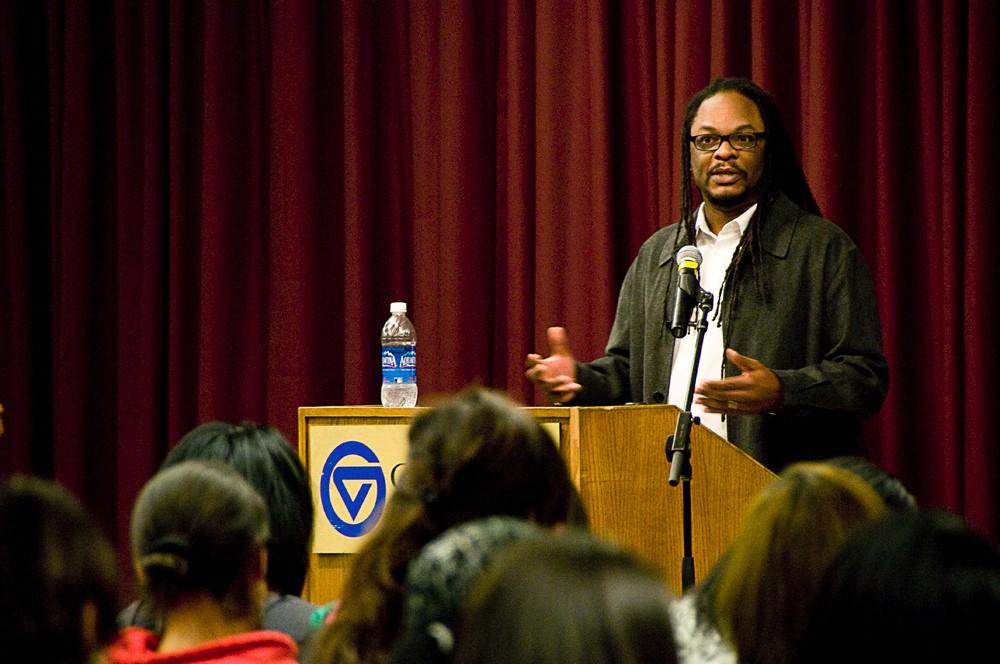Speaker promotes history of black fraternities

GVL / Nicole Lamson Lawerence Ross, author of _The Divine Nine_, spoke at Grand Valley State University
Nov 22, 2010
Author Lawrence Ross, Jr. discussed the responsibilities of membership in a Divine Nine fraternal organization Tuesday to more than 100 students donned in Greek letters. He spoke against hazing and for education and self-improvement.
In 1997, Ross, a member of Alpha Phi Alpha fraternity, began writing “The Divine Nine: The History of African American Fraternities and Sororities.” It is the first book written that covers the members of the National Pan-Hellenic Council.
The council is a collaborative organization of nine historically black, international Greek-lettered fraternities and sororities. The nine NPHC organizations are sometimes collectively referred to as the “Divine Nine.”
The creator of the national bestseller’s speech provided a history of black organizations that “stressed education, philanthropy, self-improvement and excellence.”
“The speaker was brought in to educate the campus about African-American fraternities and sororities,” said Javon Jordan, president of Alpha Phi Alpha.
“We’ve got to make sure we maintain our history, or we’ll lose the reasons why we got started,” Ross stressed.
Ross said black fraternities were started in the late 1800s on college campuses to abate the ills of racism.
“Race men founded these organizations during times when African-Americans were looked upon as inferior,” Ross said. “The founders were conscious, so everything they did was to help uplift their race.”
Ross addressed the current issues or problems that Greek organizations face today and explained why organizations haze. He said pledging has a purpose, but hazing does not.
“Hazing is for current members to make futures fear them — it doesn’t help anyone. It sets up something illegitimate as legitimate,” Ross said.
Another main topic of the event was the difference between white and black fraternities. Both cultures were recognized as having love, devotion and being community-oriented in their organizations.
“Once you graduate, our community looks at you still as a member and holds you accountable,” Ross said. “African-American members don’t have the luxury to keep the fraternity experience a college experience — our letters mean you’re a servant to the community forever.”
The program continued with the point that fraternities attract members by what the fraternity is actually doing. If they are community-oriented, then they attract that type of member. If they party, then the organization is known for that.
“All fraternity members should embrace a spirit of humbleness and realize that membership comes with a great responsibility,” Ross said.
The author’s underlying message was fraternal affiliation, or membership in a fraternity or sorority, ensures one’s success in higher education and professional life.
Ross listed the many successful and famous fraternal alumna drawn from the world of sports, entertainment, politics, business and other spheres. Some were Bill Cosby, Michael Jordan, E. Franklin Frazier, Marian Anderson and Zora Neale Hurston.

























